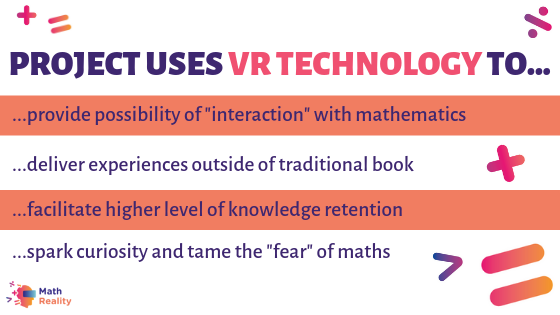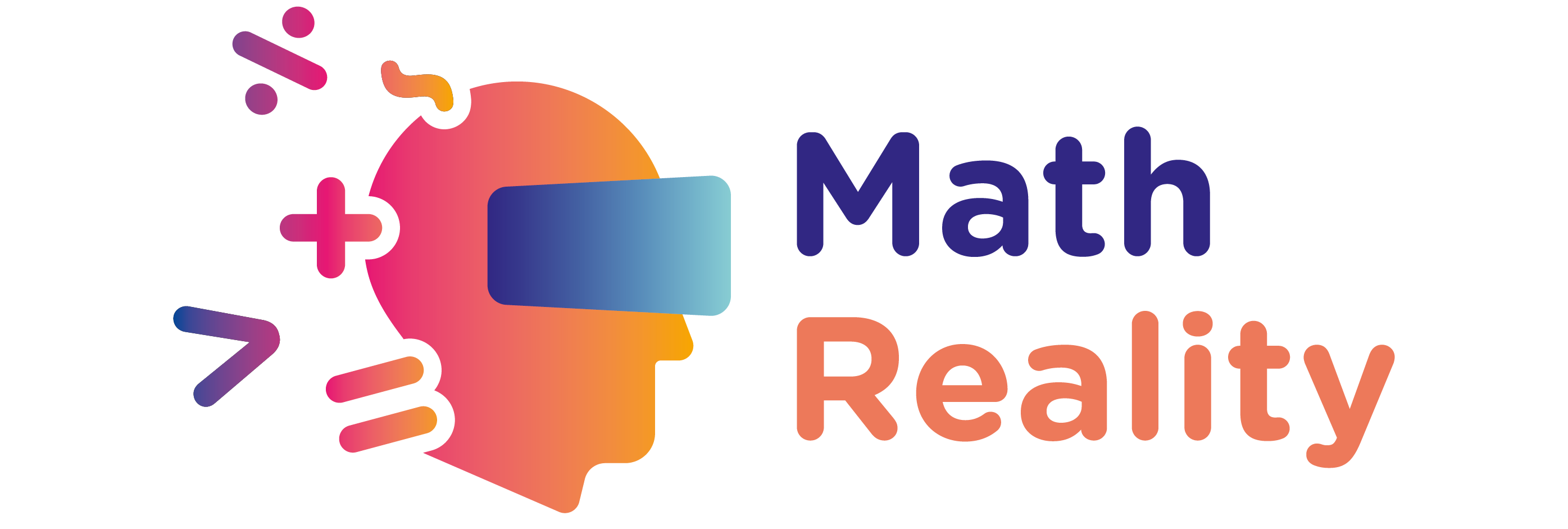ABOUT THE PROJECT
The latest PISA results (2015) show that 22.2% of European students were low achievers in math, a figure that has slightly risen up since the last PISA test (2012). Which means that more than one out of five youngsters in Europe are not equipped with this basic skill necessary for numerous jobs in our current economy. The Commission has the objective to lower this number to 15% by 2020 but, so far, in many countries compared to the previous PISA test the progression is weak (between -0.1 and -0.9 percentage points such as in Romania) when the level is not lower than before (e.g. Croatia +2,2).
It is proven by many studies that we retain around 10% of what we read, yet 90% of what we experience ourselves. Being at school is the most important educational period when students create learning mechanisms, construct knowledge and develop basic skills and acquisition methods. Many academic papers and global reports, such as the “Mathematics Education in Europe: Common Challenges and National Policies” from the Eurydice network point out the importance the learner’s motivation and engagement.

Video made in February 2020 by Srednja škola Ivanec in Croatia
Considering those two points, it is therefore essential to work on a way to improve the level of European pupils on mathematics and make their learning experience less passive. Based on their respective expertise and research, the partners are convinced that using Virtual Reality technology (VR) could play a very positive role on improving education in general and the learning of mathematics. The objective of this project is to develop new tools by means of inquiry non-formal education, hands on pedagogy methodology and usage of VR for enhancing current didactics of mathematics. The program and the tools will target the teachers and educators of secondary education to give them access to a new range of possibilities to teach this specific topic and potentially others.
For those reasons, the project partners are convinced that this approach will enhance the creativity and engagement of both teachers and students and improve teaching and learning processes. By challenging the problem of underachievement in mathematics project partners want to look beyond pre-configured curriculum resources, and understanding how usage of this technology can unlock far more potential with students than traditional content.
This approach will have benefits for all learners across Europe where only four countries have reached the 15% benchmark of low-achievers in mathematics set by the European Commission. In order to increase the relevancy of the project, the partners are all based in countries with a rate of low achievers in mathematics above the average of the EU: Italy (23,3%), France (23.5%), Croatia (32%), Romania (39.9%) and Cyprus (42,6%). The case of the Belgian partner is particular as the country performs decently in general (slightly above 20% of underachievers) but with large differences between regions as the Flanders region is one of the best performers while Wallonia, where Logopsycom is based, keeps on underperforming as they are under the European average, like the other partners’ countries.
Through this project, the partners seek to offer teachers and students an innovative methodology, tools and strategies based on the use of VR technology in order succeed in deepening students’ knowledge of mathematics through engaging virtual simulations, encouraging the development of creativity and their connection with other disciplines and concepts in order to improve their engagement and success in mathematics.
